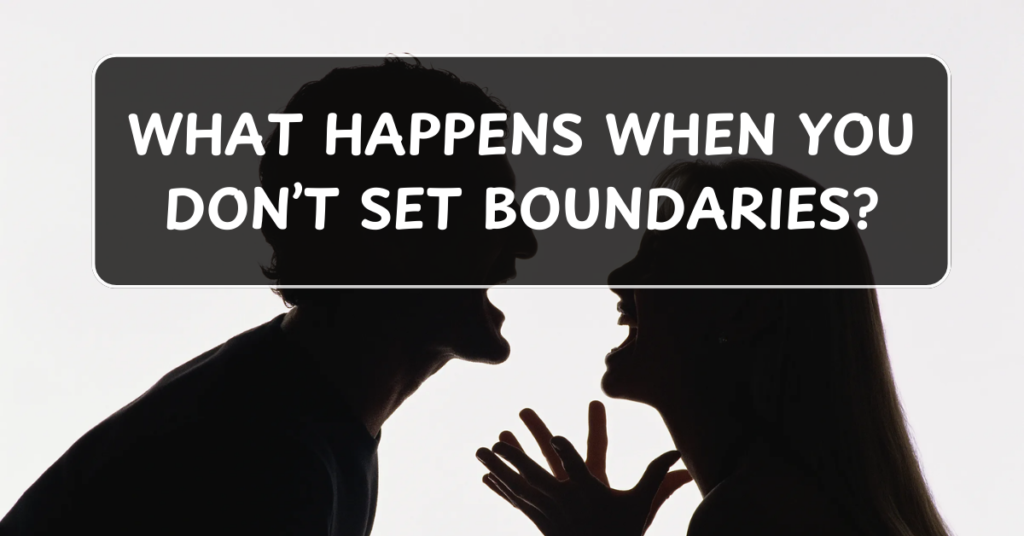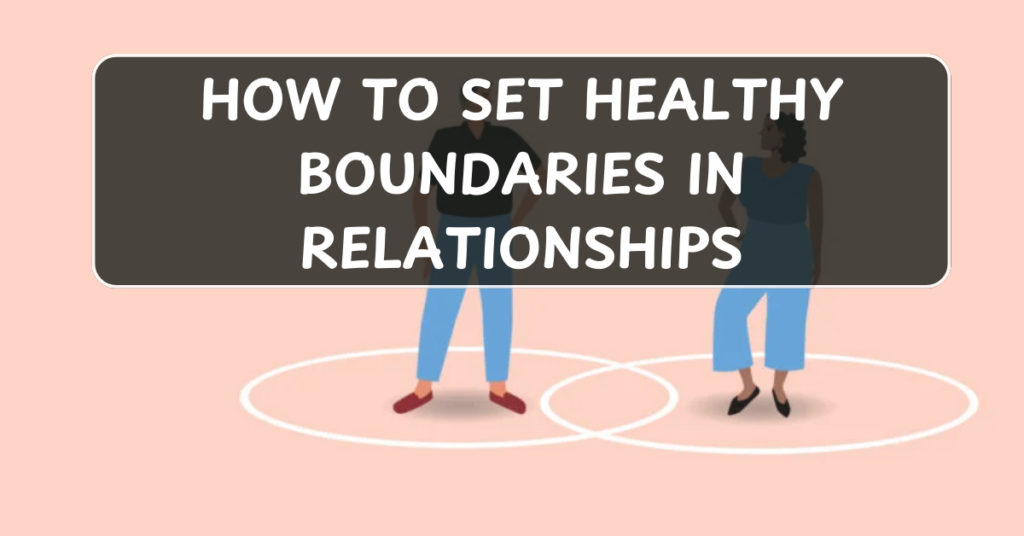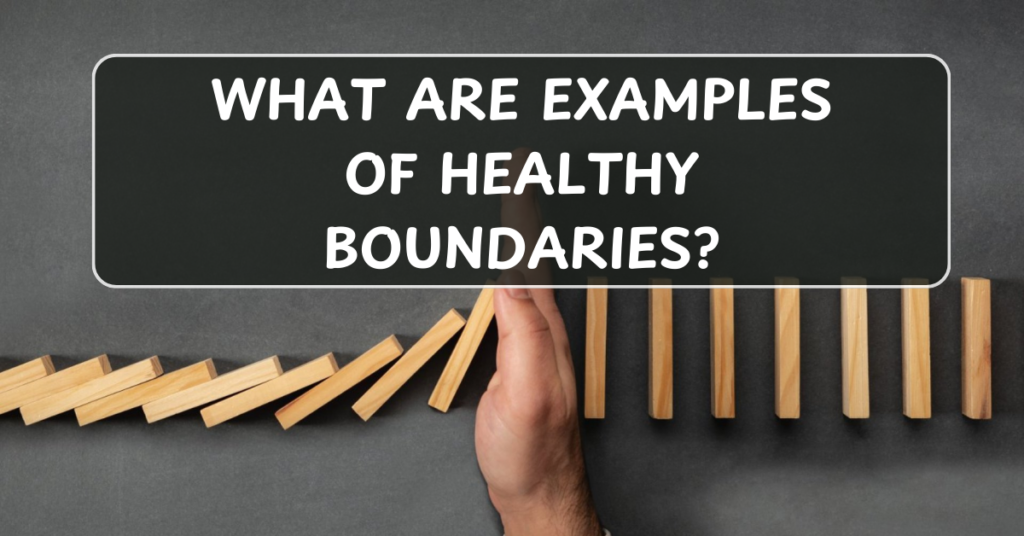
Boundaries are essential for maintaining healthy relationships, protecting your mental and emotional well-being, and ensuring you live a balanced life. When you fail to set clear boundaries, you may unknowingly expose yourself to stress, burnout, and negative interactions. The consequences of not establishing boundaries can be far-reaching, affecting your personal life, work, and overall happiness.
Here’s what can happen when you don’t set boundaries:
1. Emotional Burnout
Without boundaries, it’s easy to give too much of yourself to others, leaving you emotionally drained. Whether it’s constantly saying yes to requests, putting others’ needs before your own, or not allowing yourself time to relax, you can become overwhelmed. Over time, emotional exhaustion can lead to burnout, leaving you unable to recharge.
- Signs: Feeling physically drained, disconnected, anxious, or stressed.
>> Learn To SET Effective Boundaries: Click Here to Learn How <<
2. Resentment Builds Up
When you don’t set boundaries, you may start to feel resentment toward others who take advantage of your kindness or generosity. This is especially common in relationships where you feel you are constantly giving but not receiving in return. Over time, this resentment can lead to frustration, hurt feelings, and conflict.
- Signs: Irritation, frustration, or anger toward people you feel are taking advantage of you.
3. Lack of Personal Time
Setting boundaries ensures you carve out time for yourself to recharge, pursue your interests, and focus on self-care. Without boundaries, you may find yourself saying “yes” to every social, work, or family commitment, leaving little room for personal downtime. This can lead to stress and dissatisfaction.
- Signs: Feeling like you’re always busy, missing out on activities you enjoy, or feeling guilty for taking time for yourself.
4. Poor Mental Health
Constantly overcommitting and not protecting your personal space can negatively affect your mental health. When boundaries aren’t established, it can lead to anxiety, depression, or feelings of insecurity. This is because you’re not giving yourself permission to prioritize your own needs or protect your emotional well-being.
- Signs: Anxiety, depression, low self-esteem, or feelings of overwhelm.
>> Learn To SET Effective Boundaries: Click Here to Learn How <<
5. Increased Stress and Anxiety
Without clear boundaries, it’s easy to become overwhelmed by competing demands. Work, family, and social expectations may pile up, causing stress and anxiety. You may feel like you’re juggling too many tasks at once, and this can take a toll on your mental health and physical well-being.
- Signs: Frequent stress, headaches, insomnia, or difficulty concentrating.
6. Strained Relationships
Relationships are built on respect and mutual understanding, and when boundaries are ignored, it can lead to tension and misunderstandings. If you don’t communicate your needs or limits, others may unknowingly cross them, which can lead to conflict and strain in both personal and professional relationships.
- Signs: Arguments, conflicts, or feeling like others don’t respect your needs.
7. Loss of Self-Identity
When you don’t set boundaries, you risk losing sight of who you are and what you value. Constantly accommodating others’ needs can cause you to forget your own priorities, interests, and desires. This loss of self-identity can lead to confusion and dissatisfaction with your life.
- Signs: Feeling disconnected from yourself, unsure about your own goals or desires, or losing touch with what makes you happy.
8. Increased Risk of Exploitation
If you consistently fail to set and enforce boundaries, others may take advantage of your willingness to please. People may ask for favors, make unreasonable demands, or manipulate you into doing things that you don’t want to do. Over time, this can cause you to feel unappreciated and taken for granted.
- Signs: People regularly asking more of you than you’re comfortable with, or taking advantage of your generosity without reciprocating.
>> Learn To SET Effective Boundaries: Click Here to Learn How <<
9. Difficulty Saying “No”
Without boundaries, you may struggle to say “no” even when you’re overwhelmed or uncomfortable with a request. Saying “yes” to everything can lead to taking on too much, which can cause you to neglect your own needs or desires. Learning how to say “no” is essential for protecting your time and energy.
- Signs: Feeling obligated to help others even when you don’t have the time or emotional resources to do so.
10. Lowered Self-Esteem
When you don’t set boundaries, it can lead to feelings of inadequacy or self-doubt. If you allow others to walk over your needs or fail to assert yourself, you might begin to question your worth or feel that your needs don’t matter. This can have a detrimental impact on your self-esteem.
- Signs: Lack of confidence, feeling unimportant, or neglecting your own self-worth.
Conclusion
Setting boundaries is not about being rigid or selfish—it’s about protecting your well-being and ensuring healthy, respectful relationships. When you don’t set boundaries, it can lead to emotional burnout, strained relationships, stress, and a loss of self-identity. By learning to establish and communicate clear limits, you protect your physical, emotional, and mental health, creating a more fulfilling and balanced life. It’s never too late to start setting boundaries—your well-being depends on it!


